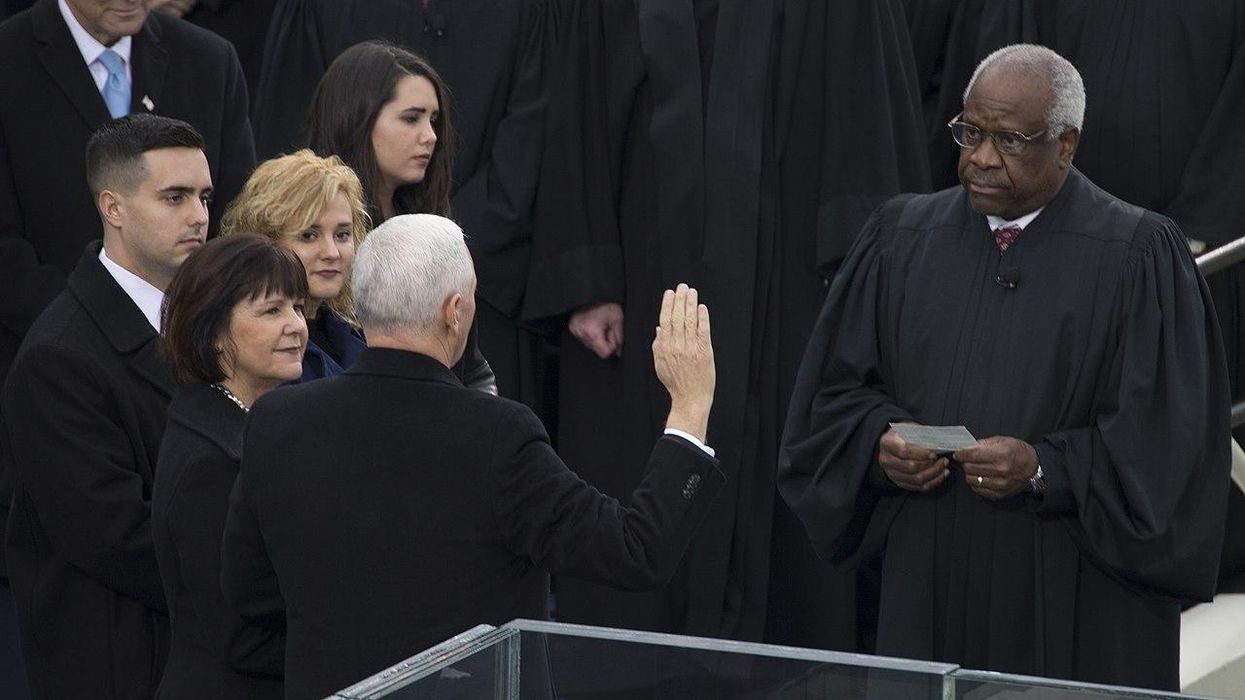Why the overtly 'partisan' Supreme Court may kill federalism: journalism


For decades, the U.S. Supreme Court expanded civil liberties, from 1969’s Stanley v. Georgia to 1965’s Griswold v. Connecticut to 2003’s Lawrence v. Texas to 2015’s Obergefell v. Hodges. And some of the “yes” votes in those decisions were appointees of Republican presidents. From Justice Anthony Kennedy (a Ronald Reagan appointee) to Chief Justice Earl Warren (a Dwight D. Eisenhower appointee), some GOP-appointed justices of the past were socially liberal in landmark rulings.
But in 2023, the U.S. Supreme Court is dominated by far-right social conservatives. When Roe v. Wade was overturned 5-4 in the 2022 decision Dobbs v. Jackson Women’s Health Organization, Justice Clarence Thomas argued that the High Court should also “reconsider” rulings that offer protections for contraception (Griswold) or gay rights (Lawrence, Obergefell).
In a scathing article published by The New Republic on January 12, journalist/author Brynn Tannehill emphasizes that if the “partisan” High Court continues to trample on civil liberties, there may come a time when blue states openly defy the Court.
READ MORE: The Supreme Court's war on the future: 17 of the Roberts Court's worst decisions
“The right flank of the Court engages in partisan activity,” Tannehill observes. “Associate Justice Samuel Alito openly sneers at and mocks justices who support gun control. Clarence Thomas is married to a woman who supported overthrowing the 2020 election and publicly uses right-wing talking points about ‘cancel culture.’ Amy Coney Barrett served as a ‘handmaid’ in a right-wing Christian cult. Bret Kavanaugh’s hearings painted him as a beer-swilling alleged rapist with ultra-rich parents to pay off his debts incurred by his country-club lifestyle. Faith in the Supreme Court has reached an all-time low as a result of this.”
Tannehill delves deep into U.S. history in the article, noting Chief Justice Roger B. Taney’s majority opinion in the infamous 1857 decision Dred Scott v. Sandford and warning that the United States is in trouble when Justice Samuel Alito and others show similar thinking in 2023.
“Historically, when the Supreme Court strays too far from what the vast majority of the public wants and starts catering to a white southern minority, nothing good comes of it,” Tannehill writes. “When the Supreme Court decided, in 1857, not only that Dred Scott was not a free man, but that no Black person could be a citizen of the United States or enjoy the rights afforded them by the Constitution, it doomed the country to civil war. In the process of protecting ‘states’ rights’ for white southerners, the Supreme Court led by Roger Taney trampled both human rights and the rights of free states to prohibit slavery on their own territory.”
Tannehill goes on to warn that the Roberts Court, in 2023, is “taking us down the same pathway as” the Taney Court during the 1850s and is doing so “at an even faster pace.”
READ MORE: The Supreme Court is dirty. Time to clean it up
“As a result,” Tannehill writes, “there’s the potential for a case to absolutely break the public’s willingness to accept Court decisions, and the union in the process. And that day is coming fast. Blue states are going to routinely contend with efforts to overturn their gun laws, efforts that will likely be successful with this Court…. But the real Dred Scott moment will be at hand when red states begin trying to extradite people from the blue states for the crime of getting abortions, providing abortions, or providing transition-related care to transgender people.”
Tannehill continues, “Deep blue states have been creating haven and sanctuary laws to protect women, doctors, transgender people, and parents of trans youth. Both California and Massachusetts have passed sanctuary laws that would prevent people from being extradited for seeking abortions in their states…. Just as the Taney Court allowed the laws of states to reach out and take freedom away from people who fled north and west, so too would the partisan Roberts Court allow these same states to extradite and incarcerate women and parents of trans youth who seek legal, necessary medical treatment elsewhere. Which brings us to the breaking point: The California attorney general would be under heavy pressure morally and from the voters to refuse to comply. At that point, federalism, and the Union, are dead, as states refuse to recognize the legitimacy of Court decisions, and the comparisons with the Taney Court are complete.”
READ MORE: Ginni Thomas’ testimony to Jan. 6 committee sparks calls to investigate Clarence Thomas